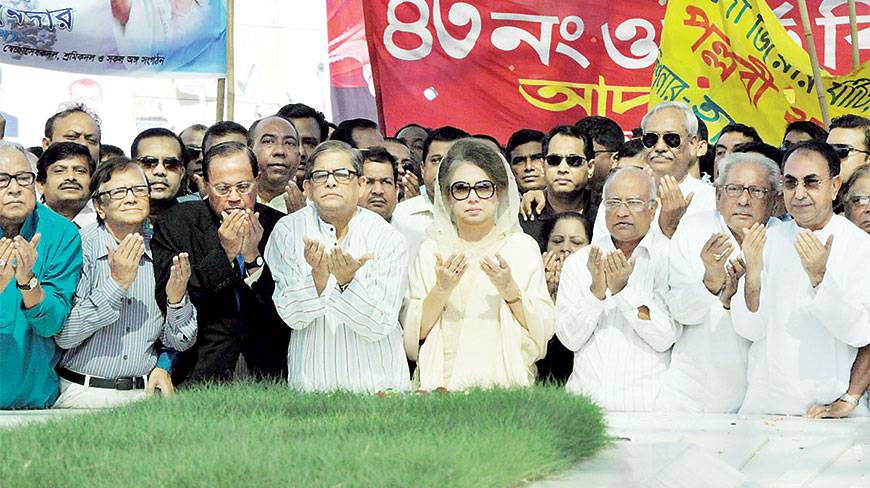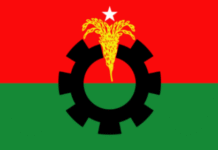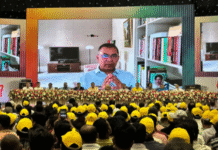Azmi’s claim that BNP can never go to power again without Jamaat’s support seems far from the truth
The recent rift between the supporters of BNP and Jamaat-e-Islami may not be the beginning of an end to the BNP-Jamaat alliance. Nevertheless, it evoked the same old question again – is Jamaat a boon or a burden for BNP? Let’s find the answer in numbers.
Jamaat leader Ghulam Azam’s son Abdullahil Azmi recently claimed that BNP could never form a government without Jamaat’s support. He has also asked BNP to remember that they can never go to power again without Jamaat. To understand the dependency on this marriage of convenience, we need to look at the “alliance factor” in our electoral politics.
In our first-past-the-post electoral system, the smallest margin of popular vote can determine who will win the national election. Around 50% of the 300 parliamentary seats have less than 10% winning margins.
In the past national elections, a total of 142, 158, and 125 seats were won by less than 10% winning margins – in 1991, 1996, and 2001 respectively. Thus, any smaller political party with at least a 5-10% electoral vote bank can become a significant help for the two close competitors – AL and BNP – to win the incumbency.
Both the parties realised this during the election of 1991, when BNP won 140 seats with a total 30.8% popular vote, while AL won only 88 seats with its 30.1% popular vote. Which means, with less than 1% overall winning margin, BNP won 52 more seats.
In that very close contest for popular vote, two sidekicks emerged as power brokers. Jatiya Party managed to win 35 seats with 11.9% of the total vote count. Despite (or as a result of) the claimed informal alliance with BNP, Jamaat appeared as the third largest political party in terms of votes, and fourth largest in terms of parliamentary seats. Jamaat won 18 seats with 12.1% votes. As a result, alliance with these two smaller parties became lucrative to AL and BNP.
In an effort to keep Jamaat in its alliance, BNP gave back citizenship to Ghulam Azam who reinstated himself as the head of Jamaat. Yet, before the 1996 election, Ghulam Azam decided to cut ties with BNP to save Jamaat from the anti-incumbency voting trend. Jamaat still lost 3.5% of total votes, while BNP’s total vote share increased by about 3% from 1991 to 1996.
BNP did lose the election to AL by 30 seats and almost 4% popular vote, while Jamaat faced a more humiliating defeat. Constituency-level results show that BNP could not win that election even with Jamaat’s vote. Nevertheless, they realised that they are both stronger together.
Their re-alliance helped them win the 2001 election. This time, BNP defeated AL by 131 seats for less than 1% extra popular vote. Constituency-level results show that it would have been impossible for BNP to win the election without the alliance with Jamaat. On this account, Azmi is probably right. Is he also right in saying that BNP can never go to power again without Jamaat’s support? Let’s check.
After Ghulam Azam’s death and before his son’s remarks, a part of the right-wing chattering-class was actually running a social media campaign highlighting Ghulam Azam’s assumed success during the 1990s in strengthening Jamaat as a political party, power broker, and part of state power. During his leadership, Jamaat probably got a stronger foothold, but at the cost of popular support.
During his leadership, when the younger post-1971 generation of Jamaat-Shibir wanted to cleanse the party by getting rid of the old war criminals, he denied that move. Instead, during his tenure, Chhatra Shibir followed the violent form of campaign that is now seen among ISIS in the Middle East. Shibir was known as the “rog kata-gola kata” wing of Jamaat for its notorious slitting or killing of student leaders at public universities.
Ghulam Azam’s personal image as the head of local collaborators and war criminals also tarnished Jamaat’s support. His opportunistic willingness to side with parties of opposite ideologies in 1996 only made that worse.
It is not surprising that during his leadership, Jamaat’s popular vote as a percentage of total national votes continued to plummet from 12.13% in 1991 to 8.61% in 1996 to 4.28% in 2001 (despite receiving BNP votes). In 2008, Jamaat received only 4.7% popular vote. Since it contested in nine more seats than the 2001 election, in reality, Jamaat lost 2,104 votes per constituency in 2008, when compared to the votes it received in 2001.
Ghulam Azam may have created millions-strong army of minions willing to gather for his cause, but under his leadership, Jamaat became the only major party that consistently lost popular vote since 1991. Jatiya Party’s vote share also declined after a rise in 1996, indicating a diminishing role of the alliance factor in politics.
As the votes BNP gain from Jamaat are declining fast, the trade-off is the major concern for BNP now. Between 2008 and now, most opinion polls have shown strong public opinion against war criminals. A nation-wide survey by Nielsen on behalf of Democracy International also suggested that an overwhelming 86% of respondents personally wanted the currently active war crimes trials to proceed despite having concerns over it.
Hence, with diminishing popularity, Jamaat is now becoming a burden for BNP. Azmi’s claim that BNP can never go to power again without Jamaat’s support seems far from the truth.
Azmi actually has no ground to call BNP “ungrateful.” It was BNP who revoked the ban on Jamaat. It was BNP who allowed its exiled chief Ghulam Azam to come back to Bangladesh. It was BNP who gave him back his citizenship. And, it was most definitely BNP who made a convicted war criminal of Jamaat a minister. For all that, BNP may have been paying now, but BNP surely does not owe any debts to Jamaat.
Source: Dhaka Tribune










